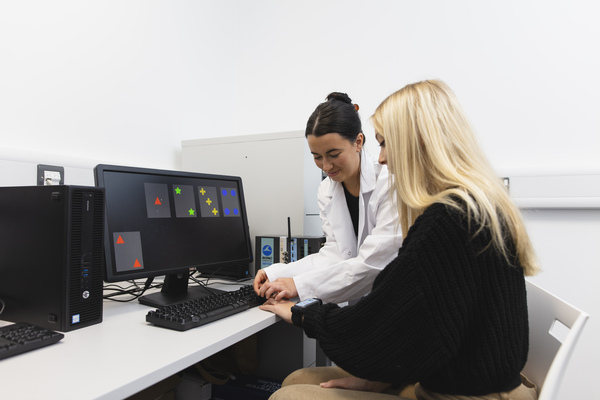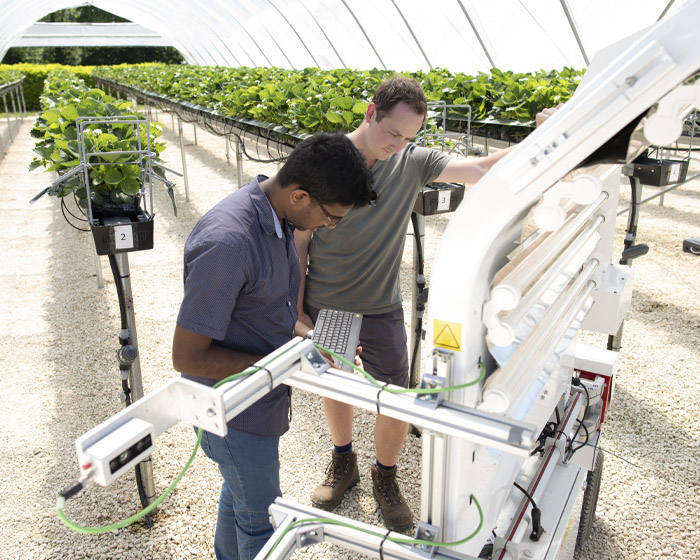Studentship One
Using AI to Manage Multi-species Grassland for Livestock Farming
Project No: FBS25-73-Parsons-lr
Supervisory Team: Professor Simon Parsons, University of Lincoln; Dr Zoe Barker, University of Reading; Professor Elizabeth Sklar, University of Lincoln
Producing plant matter for animal food is important for livestock farming, both for grazing and for
making silage. This is typically done by growing fields of rye grass. Switching to a range of species, typically including
other grasses, legumes like clover, and herbaceous plants like wildflowers, has benefits for the ecosystem and for the animals. The benefits for the ecosystem include improving soil quality, drought tolerance, and biodiversity. The benefits
for animals include better health and less methane emissions. However, farmers are wary of growing multi-species
grasslands because they do not understand how best to manage them. This project will gather evidence on management
practice from ongoing work with multi-species grasslands, and use AI to analyse this evidence and present it farmers to
help them manage their land.
Training Opportunities
The successful applicant will receive training in AI techniques, the use of the robotic and drone-based technologies which can be deployed in the field to obtain data on grassland, on field work elements like quadrat
sampling and species identification, and on laboratory analysis. They will also undertake training in the responsible and
ethical uses of AI.
Project Supervision
An online meeting with the entire supervisory team will be held once a month, and the lead supervisor will meet with the student weekly. These will be one-to-one in the sense that the DTP student will be the only student in those meetings (they will not be lab group meetings). Additional meetings with the wider supervisory group may be scheduled when appropriate (for example for planning field work during the growing season) and the student will participate in lab/group meetings where that is helpful for them. The lead supervisor has a longstanding policy of providing feedback on student paper drafts within 48 hours (in practice the turnaround is typically less). A schedule for feedback on thesis drafts (and sections thereof) varies depending on what exactly is being reviewed, but a schedule is agreed in advance.
Student Profile
This project will be of interest to candidates with either a background in agriculture or agricultural
technology who are interested in artificial intelligence/machine learning, or to candidates with a background in artificial
intelligence/machine learning who are interested in agriculture.
Stipend (Salary)
FoodBioSystems DTP students receive an annual tax free stipend (salary) that is paid in instalments throughout the year.
For 2024/25 this is £19,237 and it will increase slightly each year at rate set by UKRI.
Equity, Diversity, and Inclusion
The FoodBioSystems DTP is committed to equity, diversity, and inclusion (EDI), to building a doctoral researcher (DR) and
staff body that reflects the diversity of society, and to encourage applications from under-represented and disadvantaged groups. Our actions to promote diversity and inclusion are detailed on the FoodBioSystems DTP website and include:
• Offering reasonable adjustments at interview for shortlisted candidates who have disclosed a disability or
specific learning difference.
• Guaranteed interview and applicant mentoring schemes for applicants, with UK home fees status, from eligible
under-represented ethnic groups.
These are opt-in processes.
Our studentships are offered on a part time basis in addition to full time registration. The minimum registration is 50% FT
and the studentship end date will be extended to reflect the part-time registration.
For up to date information on funding eligibility, studentship rates and part time registration, please visit the
FoodBioSystems website.
Applications for this opportunity are by online application form, and full details can be found on the FoodBioSystems website.
Studentship Two
ValueWaste: Revealing the Potential of Organo-Mineral Fertilisers to Enhance Crop Productivity, as Well as Improve Soil Health and Sustainability
Supervisory Team: Dr Leonidas Rempelos, University of Lincoln; Professor Ruben Sakrabani, Cranfield University; Dr Iain Gould, University of Lincoln
The UK imports a significant amount of unsustainably-mined phosphorus, with low deployment efficiency leading to environmental issues like eutrophication. Organic waste streams (e.g., manure, sewage sludge) offer potential for sustainable phosphorus use but are challenging to transport and apply. In addition, issues such as variability in recovered phosphorus fertiliser nutrient content and stability, low micronutrient absorption in plants, and insufficient assessment of environmental impacts have led to low end-user uptake.
This exciting PhD project aims to develop a groundbreaking solution by using blends of organic waste residues as carriers for the creation of pelleted Organo-Mineral Fertilizers (OMFs) to enhance crop growth, yield, and quality, as well as improve soil health and sustainability, reducing the carbon footprint of crop production. The project will involve the development of a range of pelleted OMFs by blending different combinations/ proportions of organic waste, with varying levels of mineral macro-micronutrient supplementation and the use of state-of-the-art sensor technologies to compare OMFs nutrient release/availability patterns and assess the potential of multiple wheat genotypes to grow with OMFs. Outputs will be scaled/validated on field trials, where the influence of OMFs accompanied by microbial biostimulants and nutrient-efficient wheat genotypes on enhancing soil health/nutrient dynamics will also be evaluated.
Training Opportunities
The project offers training covering cross-disciplinary technical and transferable skills. Training would be provided via both partners for the use of (1) various multispectral 3D scanners for canopy/root phenotyping, and image analysis to visualize plant growth and calculate a wide variety of morphological/physiological parameters, and (2) AAS, ICP-MS for heavy metal analysis, Elementar analysers for carbon, segmental flow analyser for nitrate, and spectrophotometer for phosphorus analysis. Other training opportunities include the attendance on MSc modules in areas such as soil science, plant genetics, and food quality or image/data processing, data mining, data programming in R/Python. The student will also benefit from the University of Lincoln’s Graduate School training on research skills, scientific writing, and personal development.
Project Supervision
The student will be supported by a lead supervisor and two co-supervisors representing different disciplines. The lead supervisor will be providing overall guidance and feedback, while the other members of the team will be offering specialised support/ additional feedback. In weekly one-to-one supervision and monthly full supervision team meetings progress, challenges, review of experimental results, and plan next steps will be discussed. Written feedback will be provided within two weeks of submission while oral feedback will be given during meetings. To effectively student track progress, clear action items/deadlines will be assigned, ensuring accountability and timely completion of tasks. Decisions made, actions, and follow-up points will be minuted and shared with all participants for reference. The student will also be providing regular progress reports summarizing completed tasks, ongoing work, and challenges faced.
Student Profile
This project is ideal for candidates with at least BSc (2:1) honours degree in Agricultural Sciences and Technology, Agronomy, Plant Science, Soil Science, Environmental and Biological Science, Geography, or Chemistry. Candidates from disciplines which are not directly related to the project research area should demonstrate their ability to learn and apply new concepts and skills.
Stipend (Salary)
FoodBioSystems DTP students receive an annual tax free stipend (salary) that is paid in instalments throughout the year. For 2024/25 this is £19,237 and it will increase slightly each year at rate set by UKRI.
Equity, Diversity, and Inclusion
The FoodBioSystems DTP is committed to equity, diversity, and inclusion (EDI), to building a doctoral researcher (DR) and staff body that reflects the diversity of society, and to encourage applications from under-represented and disadvantaged groups. Our actions to promote diversity and inclusion are detailed on the FoodBioSystems DTP website and include:
• Offering reasonable adjustments at interview for shortlisted candidates who have disclosed a disability or
specific learning difference.
• Guaranteed interview and applicant mentoring schemes for applicants, with UK home fees status, from eligible
under-represented ethnic groups.
These are opt-in processes.
Our studentships are offered on a part time basis in addition to full time registration. The minimum registration is 50% FT
and the studentship end date will be extended to reflect the part-time registration.
For up to date information on funding eligibility, studentship rates and part time registration, please visit the
FoodBioSystems website.
Applications for this opportunity are by online application form, and full details can be found on the FoodBioSystems website.

/prod01/university-of-lincoln-cdn-pxl/media/responsive2017/research/newresearch/Studentships,banner2,1600X600.jpg )
